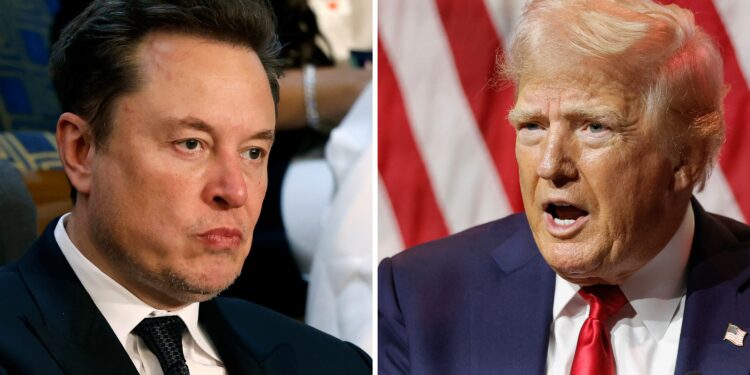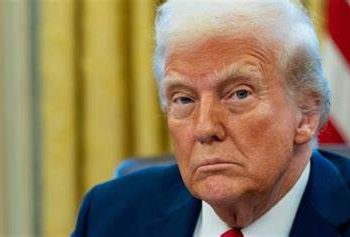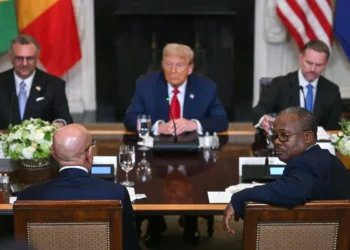Tech billionaire Elon Musk has broken ranks with former President Donald Trump in an unprecedented public dispute over Trump’s proposed “One Big, Beautiful Bill Act,” which Musk warns could severely compromise America’s fiscal health.
The SpaceX and Tesla chief executive expressed serious reservations about the legislation during a CBS News interview, marking a significant departure from his previous role as one of Trump’s most prominent supporters and financial backers during the 2024 campaign cycle.
Musk’s criticism centers on the bill’s potential to dramatically increase the federal deficit while simultaneously undermining the cost-cutting initiatives he championed through the Department of Government Efficiency, an organization specifically designed to reduce federal expenditures.
“I found myself deeply disappointed by this massive spending proposal, which actually increases rather than decreases our budget deficit and directly contradicts the work our DOGE team has been accomplishing,” Musk stated during the interview segment that aired Tuesday, with the complete interview scheduled for Sunday broadcast.
The technology entrepreneur, who previously contributed approximately $250 million to Trump’s re-election efforts, questioned the fundamental premise behind the legislation’s ambitious scope and financial implications.
“My perspective is that legislation can be comprehensive, or it can be well-crafted, but achieving both simultaneously presents significant challenges,” Musk observed, highlighting what he perceives as inherent contradictions within the proposed bill.
The controversial legislation successfully passed the House of Representatives last week and now awaits Senate consideration. The bill combines substantial tax reductions with spending cuts, though critics argue these measures could severely impact healthcare services while potentially adding $4 trillion to the national debt over the coming decade.
White House Deputy Chief of Staff Stephen Miller responded to Musk’s concerns by attempting to minimize any apparent disagreements over government spending priorities. Miller clarified that the “Big Beautiful Bill” operates independently of the annual federal budget process and emphasized that DOGE-related reductions would require separate legislative action.
Using Musk’s own social media platform X, Miller stressed that any federal bureaucracy cuts would necessitate distinct legislative procedures beyond the current bill’s framework.
Musk’s publicly expressed frustrations reflect broader challenges he encountered while leading the Department of Government Efficiency. He criticized Washington’s entrenched bureaucratic systems and acknowledged that his limited experience with political processes contributed to difficulties in achieving his reform objectives.
“The extent of federal bureaucratic dysfunction exceeded my expectations significantly,” Musk admitted. “While I recognized problems existed, the reality of implementing meaningful improvements in Washington proved far more challenging than anticipated.”
Despite orchestrating substantial government downsizing that resulted in tens of thousands of federal employee layoffs, Musk conceded that his efficiency efforts achieved only partial success. His political involvement also created significant business complications, with Tesla dealerships facing protest activities and some electric vehicles being targeted by arsonists, ultimately impacting company profitability.
As Musk has reduced his DOGE involvement, his focus has returned to SpaceX operations, where he continues pursuing Mars colonization objectives despite recent setbacks. The company experienced another significant challenge Tuesday when a prototype Starship vehicle exploded over the Indian Ocean during testing.
The political engagement’s impact on Musk’s personal finances has prompted him to announce intentions to scale back future political spending, following his substantial $250 million investment in supporting Trump’s campaign.
This public disagreement between two formerly aligned figures highlights potential fractures within Trump’s support coalition and raises questions about the sustainability of relationships between political leaders and their major donors when policy disagreements emerge.

















